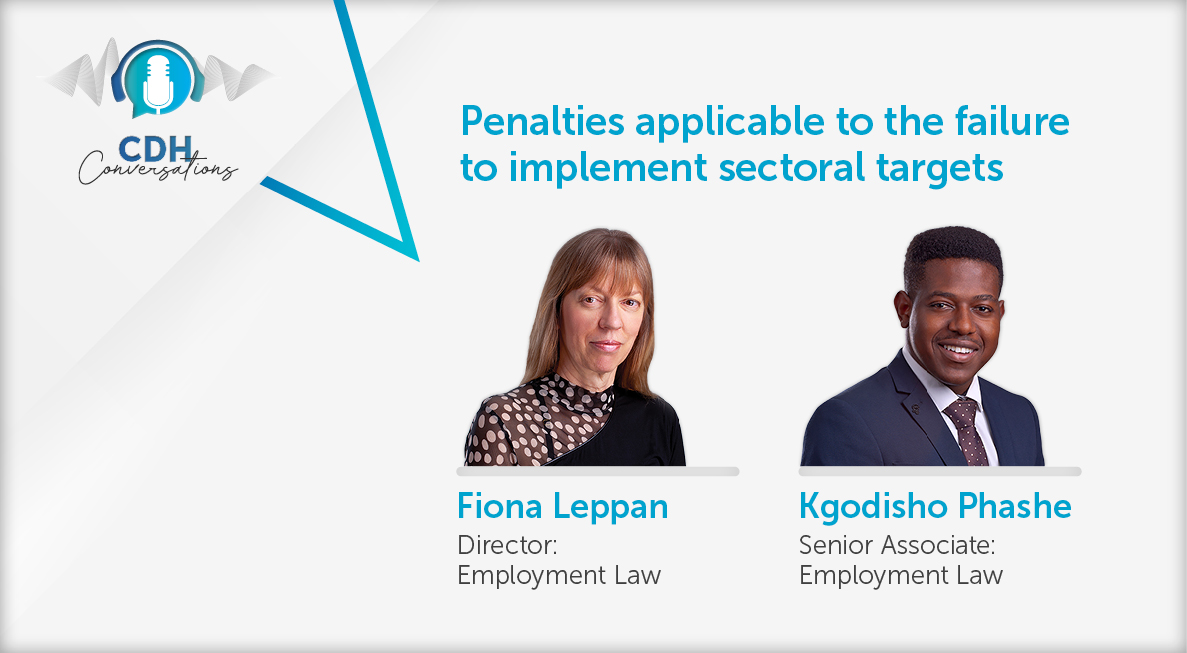The right to cancel a contract: Does it prescribe?
At a glance
- Parties often ignore the terms of a written contract unless there is a breach or a desire to terminate the agreement.
- If a party has the right to cancel a contract but fails to exercise that right within three years, it does not prescribe like a debt under the Prescription Act.
- While the right to cancel is not considered a debt, failing to make a decision within a reasonable time can weaken the right and subject it to court judgment. It is important to act promptly after a breach to determine the fate of the contract.
In light of the above, the problem which arises is what happens in an instance where a party obtains a clear right to cancel an agreement but fails to exercise the right within three years. Does the right to cancel prescribe? Does this render the right to cancel equivalent to a debt? Would this make contracts more onerous for parties who will need to be aware, at all times, of potential breaches giving rise to cancellations and the limited period one can act on them?
In Stewart Wrightson (Pty) Ltd v Thorpe [1977] (1) PH A15 (AD) the court stated that cancellation is a unilateral juristic act performed by the innocent party and does not require the consent of the guilty party. To exercise this right, the innocent party must express their intention to cancel by words or clear actions and communicate said decision to cancel to the guilty party. Importantly, the right to cancel is subject to the doctrine of election, which means that until a party takes this step and communicates it, the contract is arguably both binding and cancelled. The question therefore is what happens if the right to cancel arises but is never acted on and the election never made?
To determine whether the right to cancel prescribes, one must consider the concept of prescription and what it entails. In terms of section 10(1) and (2), read with section 11, of the Prescription Act 68 of 1969 (Prescription Act), a contractual debt is completely extinguished after the expiry of the prescription period for that debt and any subsidiary debt, which includes interest on the main debt, is also extinguished. Prescription of a debt, which is necessarily the correlative of a right of action vested in the creditor, means that one’s right to claim is rendered extinguished.
Defining “debt”
From the above, what is clear is that the Prescription Act extinguishes a debt. The term “debt” thus requires analysis to determine whether a right to cancel falls within its definition. “Debt” is not defined in the act which means one must consider case law. The court in Electricity Supply Commission v Stewarts and Lloyds of SA (Pty) Ltd [1981] (3) SA 340 (A), held that a debt for the purposes of the Prescription Act is “that which is owed or due; anything (as money, goods or services) which one person is under obligation to pay or render to another”. This definition was then expanded on by the Supreme Court of Appeal in Off-Beat Holiday Club v Sanbonani Holiday Spa Shareblock Ltd [2016] (6) SA 181 (SCA) where the court held that “it is established that for the purposes of this act the term has a wide and general meaning; that it includes an obligation to do something or refrain from doing something; it entails a right on one side and a corresponding obligation on the other”.
Up until the judgment of Makate v Vodacom (Pty) Ltd [2016] (4) SA 121 (CC) one could possibly argue that a wide interpretation of the word “debt” could, and in fact should, include the right to cancel. This, however, changed once the Constitutional Court held that the word “debt” in the Prescription Act is to be interpreted narrowly. Despite the court finding it unnecessary to define the meaning of the word debt because the claim with which it was concerned, a contractual obligation to agree to negotiate, fell outside the definition of debt, it still proceeded to interpret the word as being restricted to personal obligations to specifically pay money, deliver goods or render services. The court held that one should abide by the plain and narrower meaning of “debt”, which is “something owed or due: something (as money, goods or service) which one person is under an obligation to pay or render to another”. If one thus considers the narrow interpretation of “debt” in the context of cancellation and in line with Makate, then one would have to agree that the right to cancel an agreement as a result of a breach by the other party is not a “debt” because it is fundamentally a unilateral step that a creditor takes against the debtor without there being a corresponding debt or liability by the debtor to the creditor. There is no obligation to cancel and there is no reciprocal duty upon cancellation, thus rendering the right to cancel not a debt. Thus, the right to cancel is not a debt as set out in the Prescription Act and it therefore cannot prescribe.
When one applies Makate to the right to cancel, the conclusion reached is that it is not a debt as per the Prescription Act and it cannot prescribe. Notwithstanding this conclusion, it is important to note that the choice of whether to uphold or cancel a contract is subject to reasonableness. In Segal v Mazzur [1920] CPD 634 644–5 the court held that:
“when an event occurs which entitles one party to a contract to refuse to carry out his part of the contract, that party has a choice of two courses. He can either elect to take advantage of the event or he can elect not to do so. He is entitled to a reasonable time in which to make up his mind, but when once he has made his election he is bound by that election and cannot afterwards change his mind … the question whether a party has elected not to take advantage of a breach is a question of fact to be decided on the evidence, but it may be that he has done an act which, though not necessarily conclusive proof that he has elected to overlook the breach, is of such a character as to lead the other party to believe that he has elected to condone the breach, and the other party may have acted on such belief.”
Therefore, even though the right to cancel will not prescribe, failure to make an election within a reasonable time could undermine one’s right and subject it to the judgment of the court. Exercising the right to cancel or uphold a contract within a reasonable time after a breach is therefore important if one wishes to determine the fate of the contractual relationship as failure to do so could leave the fate of the contract up to the courts.
The information and material published on this website is provided for general purposes only and does not constitute legal advice. We make every effort to ensure that the content is updated regularly and to offer the most current and accurate information. Please consult one of our lawyers on any specific legal problem or matter. We accept no responsibility for any loss or damage, whether direct or consequential, which may arise from reliance on the information contained in these pages. Please refer to our full terms and conditions. Copyright © 2026 Cliffe Dekker Hofmeyr. All rights reserved. For permission to reproduce an article or publication, please contact us cliffedekkerhofmeyr@cdhlegal.com.
Subscribe
We support our clients’ strategic and operational needs by offering innovative, integrated and high quality thought leadership. To stay up to date on the latest legal developments that may potentially impact your business, subscribe to our alerts, seminar and webinar invitations.
Subscribe




